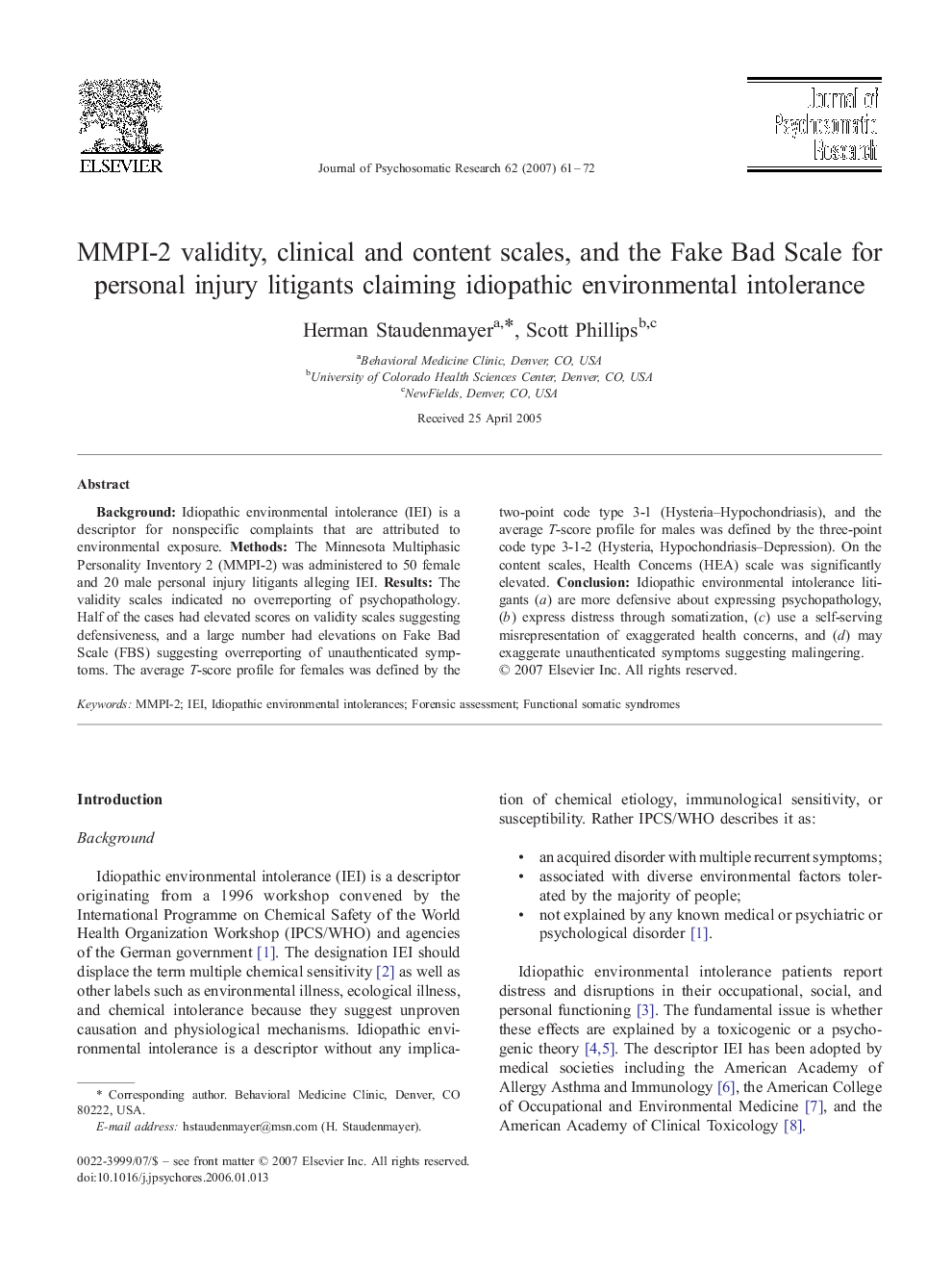| Article ID | Journal | Published Year | Pages | File Type |
|---|---|---|---|---|
| 950679 | Journal of Psychosomatic Research | 2007 | 12 Pages |
BackgroundIdiopathic environmental intolerance (IEI) is a descriptor for nonspecific complaints that are attributed to environmental exposure.MethodsThe Minnesota Multiphasic Personality Inventory 2 (MMPI-2) was administered to 50 female and 20 male personal injury litigants alleging IEI.ResultsThe validity scales indicated no overreporting of psychopathology. Half of the cases had elevated scores on validity scales suggesting defensiveness, and a large number had elevations on Fake Bad Scale (FBS) suggesting overreporting of unauthenticated symptoms. The average T-score profile for females was defined by the two-point code type 3-1 (Hysteria–Hypochondriasis), and the average T-score profile for males was defined by the three-point code type 3-1-2 (Hysteria, Hypochondriasis–Depression). On the content scales, Health Concerns (HEA) scale was significantly elevated.ConclusionIdiopathic environmental intolerance litigants (a) are more defensive about expressing psychopathology, (b) express distress through somatization, (c) use a self-serving misrepresentation of exaggerated health concerns, and (d) may exaggerate unauthenticated symptoms suggesting malingering.
